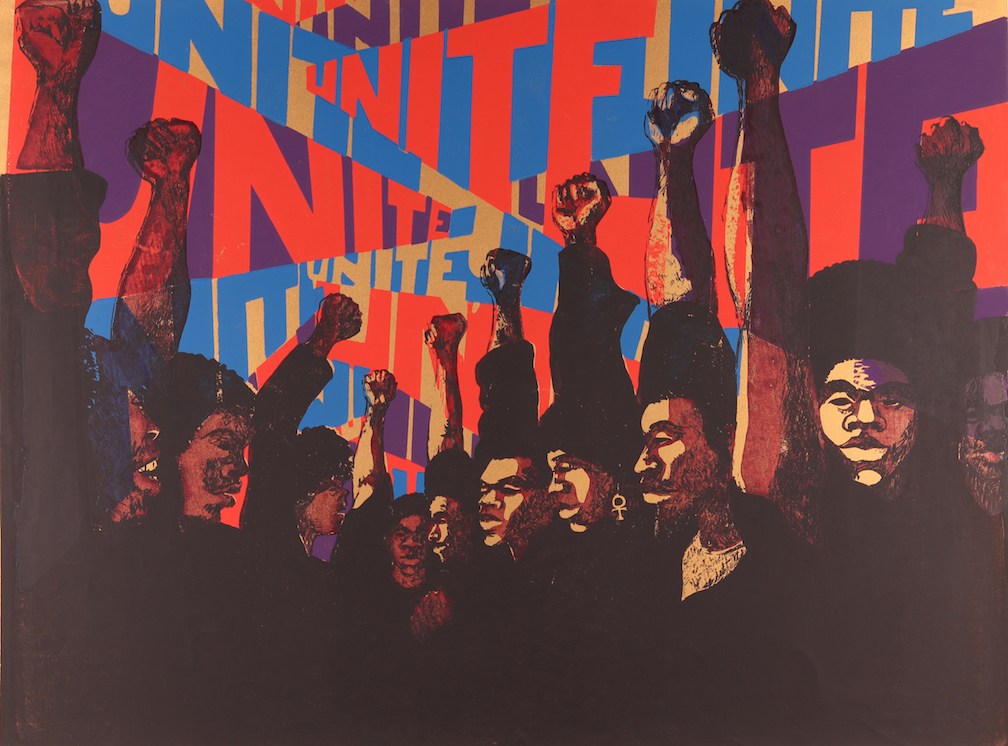It is only too easy to find disturbing paradoxes in the current political conjuncture. Few, however, are more disturbing and potentially disastrous than the paradox of what we will call anti-anti-racism on the Left. It is to political practice what class-reductionism is to theory, but because it exists in and is directed to the practical realm, it poses a far more serious and immediate problem than a theoretical error with only a distant relation to political activity. In fact, class reductionism in the US and the UK was far from uncommon on the Left over the last 60 years, and critics worried then as now that class no longer occupied its rightful place at the center of socialist strategy. Few, if any, however, thought to dismiss struggles against racism as unnecessary distractions or as deliberate attempts to undermine the workers’ movement. Even less did anyone think to contest the validity of struggles against racism in the US, most of which historically represented mobilizations by racialized groups to defend themselves against direct and indirect, but systematic, violence, carried out by the state or by white supremacist formations defending extra-legal, customary regimes of racial subordination. They undertook these mobilizations not because of some commitment to an identity but because experience had shown them that in the end they could rely on no other forces than their own to defend their communities. And too often when (mainly white) Left organizations joined these mobilizations, they attempted to “provide political leadership,” which meant imposing their own political programs and priorities without regard to the concrete features and aims of the movements. These experiences led to a recognition of the need for autonomous organizations of specially oppressed groups.
Today that need is greater than ever and for reasons few could have predicted. In the guise of a critique of identity politics, it has become increasingly common, and widely acceptable, not simply to ignore these struggles or merely pay lip service to their importance, while ignoring them in practice, but to denounce them as “particularistic” and narrow, undertaken only to secure benefits and privileges for a minority of the population (exactly as the recent teacher strikes have been depicted as the “selfish” and even greedy actions of those unwilling to put the needs of students above their own). A quarantine is imposed on the fight against specific racist practices and their effects and after-effects through the application of the label of “identity politics,” as if specifically anti-racist action were a kind of pathogen that, if left unchecked, could pose a serious risk to the class struggle. The unshakeable faith of those who believe that economic reforms will make racism disappear and who see the self-organization of the specially oppressed as divisive and an obstacle to achieving these reforms, is only part of the problem. A critical analysis of the anti-anti-racist tendency (and its enablers) requires a brief examination of the two histories at work here: the history of what we will call economism in the socialist and Communist movements and the history of the concept of identity politics.
The history of the name, identity politics, is a history, as both Keeanga-Yamahtta Taylor and Asad Haider have shown, whose complexity remains hidden behind its current use as a term of depreciation. When the Combahee River Collective (CRC) introduced the notion of identity politics in the seventies, the idea of identity they invoked was fundamentally distinct from the identity that is portable and easily transferable, an identity that one can “assume” (or set aside) at will, or that, at the extreme, can be stolen in an act of identity theft. Perhaps most importantly, the concept of identity as they understood it was also distinct from the notion of identity as a consciousness of oneself (or a collective conscious of itself), a mere representation of the experience that conferred a particular “personal identity” on an individual or a collective identity on a group. The identity to which the CRC’s statement referred was the identity attributed to and imposed on individuals, above all, by the state, composed not simply of a proper name, but also of the historically variable means of identification (e.g., nationality, race and gender) that render individuals identifiable and accountable by locating them in relation to a set of social and political coordinates. There is nothing immaterial about this identity; it is realized through apparatuses, practices, and rituals and is as material as class relations (we might think of the “identification” that the police demand when they stop us). It has a history, in fact, a history inseparable from the existence of classes and that developed directly or indirectly in response to property forms characteristic of the capitalist mode of production and, through a complex of struggles, became “interlocked” with class in ways that profoundly affect both the life chances of individuals and the concrete character of class struggles.
For the CRC, understanding political identity as a node in a network of multiple identities imposed and resisted by different apparatuses and practices, allowed them to map the terrain on which they were compelled to carry out their struggle. And a war, a real war, not an imaginary war of position between two clearly demarcated camps, but a war fought on multiple fronts, requires constant maneuver, as well as a constant accumulation of forces through alliances based on the exploitation of every conflict, contradiction and antagonism available, in order not to be decimated by a more powerful enemy. This was, for Lenin, one of the most important lessons of 1917: the idea of a “pure” class struggle whose strategy and tactics could be decided a priori was a myth whose effect would be to disarm the revolutionary forces. The forgetting of this lesson and an inability to translate it into the terms of the present have ensured that the attempts to demonstrate the power and originality of the CRC’s analysis of identity have had little resonance. The phrase “identity politics,” now serves to perpetuate the myth of a pure class politics that must be defended against the particularism of the struggles against special oppression, as if any demands other than those that, in theory, will “lift all boats,” (and thus not address the specificity of oppression) can only undermine the class struggle. The category of “identity politics” is the means by which anti-anti-racism trivializes and, worse, dematerializes the very real practices that constitute race and racism in order to convince those most affected that their oppression is somehow less real or essential than class exploitation and can only be addressed through future economic transformation. The fact that such arguments have proven remarkably ineffective has only had the effect of assuring those who do not face special oppression that the struggles against it, and those who wage them, can be safely ignored.
The rejection of conceptions of race as a meaningful marker of human genetic diversity that once served to justify existing social and legal inequalities has produced (and not simply in the US) a series of contradictory effects. Far from leading to the disappearance of racism, the invalidation of race as a biological concept furnished the basis for a refusal to acknowledge the historical and social reality of race and the legal, but increasingly customary and informal, modes of exclusion and oppression tied to this reality. Indeed, it gave rise to the apologetic position that race, having no natural existence, was little more than an unstable, fictional construction governed by individual initiative, or even the pursuit of individual interest through an entrepreneurial manipulation of race.
At this point, we might pause for a moment to ask how racism came to be so completely dematerialized as to be relegated to the status of ideas (“prejudices”) or consciousness, and declared so transitory that to make anti-racism a central part of a strategy for socialist transformation could appear to be a mistaking of the contingent for the necessary and the inessential for the essential. The explanation that the denial of the centrality of racism (or more accurately, the centrality of the interlocking of racial oppression and capitalist exploitation) is yet another ruse of a white supremacy, a domination that works all the more effectively when it operates invisibly and inaudibly, is not sufficient. The question we must all face is how the Left in the US could trivialize and minimize the effects of racism at the very moment of a resurgence of openly white supremacist and neo-fascist movements whose ideas have conquered a place in public discourse. And to argue that these movements, whose mass base is unlike anything seen since the 1930s, are not really fascist or that their activists, if treated with respect and instructed as to their material interests, can be won to socialism, despite their repeatedly demonstrated commitment to violent racism, Islamophobia and Anti-Semitism, is simply another way of denying that organized racism has grown enormously in the last few years and poses a danger to those who are the objects of their hatred, including Marxists. It is indeed possible for the Left to reduce the threat they represent and even to reach a part of their periphery, but only if and when the relationship of forces shifts in favor of anti-racist and anti-fascist movements which the Left must help build. The more powerful the white nationalist movements become, they more they are able to attract and hold adherents. To justify abstention from anti-racist action by arguing that winning universal health care will make neo-Nazis, militias and neo-fascist street-fighting organizations suddenly disappear is precisely an example of that simplified version of Marxism, responsible for a great many of the disasters and betrayals of the past century, we have called economism.
As if on cue, and despite a mountain of critiques that few bother to address, the base and superstructure model according to which social life arises by means of emanation or expression from the economy, understood as the means of production together with the relations of production that correspond to them, has enjoyed a revival. It is cited as the very image of materialism, as if to speak of the material basis of what is not itself material is the fundamental gesture of materialism. In fact, just as theologians were once perplexed by the problem of how a perfectly spiritual God could produce, create or be expressed as what is foreign to his being, matter, we are confronted with the same problem, but in reverse: how can what is material produce or give rise to the immaterial or less material superstructure, except through notions of causality historically associated with Christian accounts of divine creation as the degradation of spirit through emanation or expression? An index of its immateriality is the notion, central to this model, that the economic base produces the ideological, legal and political superstructure it requires to ensure its reproduction. From this postulate follows the idea that evils, such as racism, that have arisen from the economic base (perhaps as an “unintended consequence” of its reproduction) will necessarily change when and if it changes. In this way, racism only appears to have its own existence; in fact, according to this model, it is a phenomenon, if not the epiphenomenon (unreal and insubstantial), of the economic base. Fighting racism is to take the symptom for the underlying disease (and the correlate of this position is that eradicating the disease will automatically clear up its symptoms). But racism is not epiphenomenal, a set of illusions or ideas that will simply evaporate when economic conditions change. On the contrary, it exists as a complex of practical and institutional, state and non-state, forms of subjection, coercion and violence. Neither police bullets, nor ICE detention centers, nor the extra-legal and customary forms of violent white supremacism, can be made to disappear simply by winning wage increases and higher levels of unionization. Not even socialist transformation can by itself end racism, which persists in habits and customs that will only change through a prolonged struggle.
While the miracles that such a model promises are certainly are a part of its allure at present, there is the added (largely imaginary) benefit that the confrontation with racial inequality, including the unequal application of violence and coercion, that is thought to be “alienating” to the white working class as a whole (and not simply those participating in racist mobilizations), preventing them from engaging in the class struggle, can be avoided. Rather than undertaking the prolonged and sometimes challenging process of educating white workers through both theory and practice about the material effects of racism and the need to support in the most active ways possible the movements of African-Americans and Latinx against their specific oppression, economism encourages the notion that such movements can be written off as “particularistic” distractions from the class struggle to which they remain external. Economism in this way represents an opportunist adaptation to the rear-guard of the white working class on the grounds that talk about race will excite their prejudices and lead them to turn away from unity in action.
Some of the crudest versions of economism go even further. The idea that a socialist movement could lead struggles against both capitalism and racism, an idea fundamental to the revolutionary tradition and that has distinguished it from the various incarnations of social democracy and reformism, is denounced as an attempt to infiltrate the left and direct it to ends foreign to it: the “do both strategy” allows “powerful enemies of the Left (and allies of capital)” to “worm their way into our coalition and play up identity to reshape working-class demands until they’re neutralized.” Here, those who face violent state repression on a scale unknown to white workers (or Leftists) and who dare to mobilize against this repression become infiltrators who seek to “play up” identity to neutralize a purely economic program. What is the effect of such a position? It leaves the significant part of the working class that is African-American and Latinx (who are projected to be fifty percent of the working class under the age of 54 within ten years) to fight police killings, mass incarceration and deportation on their own, and instructs the most exploited, the poorest and those who daily face an array of threats unique to them, to set aside their demands so as not to alienate those who, however marginally, are better off in nearly every measurable way.
It is instructive in this context to recall the example of the Revolutionary Union Movement in Detroit: black workers, angry at the murderous racism exhibited in the suppression of the Detroit riots of 1967, began to organize against racism in the city’s auto plants–racism represented both at the level of management in the unequal wages and working conditions of black workers and at the level of a union bureaucracy indifferent, if not actively hostile, to their grievances. Their rank and file organizing and wildcat strikes, beginning in May 1968, not only did not alienate white workers, but drew a significant number into the struggle and played a major role in initiating a militant multi-racial rank and file movement across a number of key industries. In the Justice for Janitors movement in Los Angeles, Latinx workers, many from El Salvador, brought energy, and more importantly experience and knowledge, to the struggle. They were very well acquainted with violent police tactics and how to minimize their effectiveness, and taught everyone involved lessons that proved very useful in a variety of other movements. Their union local integrated immigration (and other anti-racist) issues into their organizing activity and the result of their “particularistic” focus was a major leap forward for a large segment of the working class in the region. A Left that refuses to fight racism and xenophobia directly, in the here and now, or worse, condemns, in the name of the class struggle, those who have no choice but to resist the oppression they face, can only weaken the very labor movement they claim is at the center of their politics. The fact that liberals may attempt to appropriate anti-racism for their own purposes does nothing to diminish its importance, especially in the current conjuncture. Economism and anti-anti-racism, not “identity politics,” lead to division and defeat. Socialists who refuse to oppose the very real danger of organized and active white supremacy, not only in their propaganda, but in practice, in the street and in workplaces, shoulder to shoulder with those who do not have the luxury of ignoring this danger, have lost sight of the very meaning of socialism.
The ahistoricism of economist anti-anti-racism is nowhere more evident than in its often bizarre invocation of universalism. Despite references to the Enlightenment, we are presented with an abstract, atemporal model of the opposition between (good) universalism and (bad) particularism, as if the particularism of master and the particularism of the slave (an opposition particularly important for the Enlightenment in all its diversity) were equally at odds with the universal. This was precisely the conundrum faced by the drafters of the first version of the Déclaration des Droits de l’Homme et du Citoyen (1789): how to balance the right to freely dispose of one’s person, against the right freely to dispose of one’s own property (for example, slaves, bought and paid for in good faith on the open market). Their universalism demanded of them “an indifference to difference” and accordingly they refused to privilege one fundamental right over another. But, as Marx noted in volume one of Capital, between equal rights, force decides. The force of the slave revolt in Haiti decided, but only for as long as the slaves’ power endured, in favor of the freeing of the masters’ property, as mandated by the Declaration of 1793. The particular universalism invoked today (which means that there are a number of distinct universalisms) does not reproduce the content of the undecidable contest of rights that troubled France in 1789, but its form: particularisms as such are bad and the universal is the negation of the particularity of particulars. This is the postulate that guides the choice of demands and in fact takes the place of a strategy based on an evaluation of the forces and tendencies that make up the conjuncture and an adequate knowledge of the history of the labor movement in the US (in particular its relation to other movements). Such an approach to strategy is disarmingly simple: if we choose a universal issue (one that affects everyone equally–in theory) and explain our demand in plain language, the people, now awakened to their self-interest, will rise. If our attempts to rouse them fail, the problem is that too many have been mistakenly drawn to particularistic diversions: police killings of African-Americans, deportation and detention of Latinx, or constant Islamophobic mobilizations, not to mention the focal points of international solidarity movements, such as Palestine. In fact, anti-imperialist movements have radicalized entire generations, with large numbers actively promoting the defeat of their own colonial power and the victory of “the enemy.” And just as social democratic parties and some Communist Parties (such as the French Communist Party), opposed national liberation struggles in the colonies (often citing the “immaturity” of their economic development), so they opposed these movements of resistance and solidarity as provocations likely to alienate French or British workers and bring about state repression. Further, if the term “universal” in political practice often means nothing more than what a majority will fight for, the set of all existing particularisms may add up to, if not a majority, a collective counter-universalism of the convergence, not the negation, of particularities: a universalism of difference in which particular movements join together without sacrificing the fight against their particular oppression. Its opposite is a universalism of the same, moved by a fear of the other who remains other (whether by choice or because certain groups are deemed inassimilable), and the particular that does not lose its particularity in the empty uniformity of a bad infinity, to use Hegel’s phrase. This is the universalism so often invoked in places like enlightened France (where students cannot wear the hijab to public school) and, even worse, Denmark, which combines a welfare state with a coercive campaign of forced assimilation that amounts to the total regulation of the lives of Muslims (which includes a mandatory program of 25 hours per week of instruction in Western values for Muslim children–failure to comply means a loss of benefits, including housing), enthusiastically supported by the Social Democrats.
The choice before us is clearly not between universalism and particularism, but between antagonistic universalisms. The universalism that unites different struggles to increase the power of each without attempting to overcome their difference and that understands the profound links, both strategic and structural, between capitalist exploitation and racial oppression can never appeal to or rely on theoretical fictions like “human nature,” to offer guarantees of both its validity and its eventual triumph.1 On the contrary, to maintain a universalism of this type is an interminable task that requires constant adjustment and redefinition in the face of ever-changing circumstances: it is a universalism that must be fashioned and re-fashioned from, not found already existing in, the diverse forces engaged in contesting oppression and exploitation. A universalism that seeks to gather them together to fight and to think more effectively offers no guarantees, and promises nothing more than the chance, if and when an opening arrives, of overturning the existing relations of subjection.
1 Rousseau, Discourse on the Origin of Inequality: “The philosophers, who have inquired into the foundations of society, have all felt the necessity of going back to a state of nature; but not one of them has got there. . . . Every one of them, in short, constantly dwelling on need, avarice, oppression, desires and pride, has transferred to the state of nature ideas which were acquired in society; so that, in speaking of the savage, they described the social man.”












